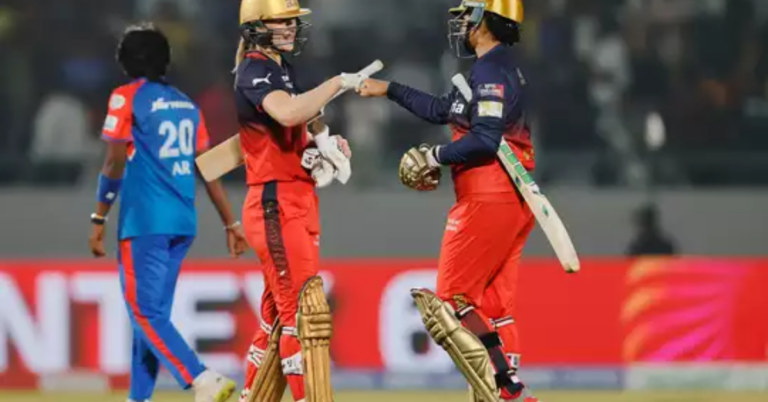How Cricket Teams Utilize Sports Psychology
Online Cricket ID, Play99exch: Mental preparation in cricket is often the key differentiator between a good player and a great one. The ability to stay focused, confident, and composed under pressure can greatly impact performance on the field. Players who prioritize mental readiness alongside physical skills are more likely to excel in high-intensity situations and deliver consistent results.
By engaging in mental preparation techniques such as visualization, goal setting, and stress management, cricket players can enhance their overall game. Developing a strong mental game not only improves individual performance but also contributes to team success by fostering resilience, communication, and cohesion. Emphasizing mental readiness in cricket can lead to a more dynamic and effective playing experience, ultimately maximizing potential and achieving desired outcomes.
Building Confidence and Focus through Sports Psychology
Confidence and focus are two crucial elements that can make a significant difference in an athlete’s performance on the cricket field. Sports psychology plays a pivotal role in helping players build and maintain these essential mental skills. Through various techniques and strategies, athletes can learn to cultivate a strong sense of self-belief and concentration, enabling them to perform at their best when it matters most.
By working with sports psychologists, cricketers can develop personalized mental training programs that target their specific needs and areas of improvement. These programs may include visualization exercises, positive self-talk, goal-setting techniques, and methods to manage distractions effectively. By consistently practicing these mental skills, athletes can enhance their confidence levels, sharpen their focus, and ultimately elevate their performance on the field.
Overcoming Performance Anxiety and Pressure
Performance anxiety and pressure can be common challenges that athletes face in competitive sports, including cricket. These feelings can stem from the desire to perform well and meet both personal and team expectations. The intensity of the game and the fear of making mistakes can exacerbate these feelings, leading to a negative impact on one’s performance.
To overcome performance anxiety and pressure, athletes can adopt various strategies to help manage their emotions and focus on the task at hand. One effective approach is to engage in relaxation techniques such as deep breathing exercises and visualization to calm the mind and body. Additionally, setting realistic goals and focusing on the process rather than the outcome can shift the mindset towards improvement and growth, helping to alleviate the pressure of performance expectations.
Enhancing Team Communication and Cohesion
Effective team communication and cohesion play a crucial role in the success of a cricket team. Clear and open communication among team members can foster a sense of unity and understanding, leading to better coordination on the field. When players are able to communicate effectively with each other, they can strategize more efficiently and make split-second decisions with confidence.
Moreover, building strong team cohesion can enhance trust and camaraderie among players, creating a positive and supportive team environment. This sense of unity can help players overcome challenges together and stay motivated during tough times. By fostering a culture of respect, collaboration, and support within the team, players can work towards a common goal and achieve success collectively.
Developing Resilience and Mental Toughness
Resilience and mental toughness are essential traits for athletes looking to perform at their peak. When faced with setbacks or challenges, individuals with a strong mental fortitude are able to bounce back quickly and stay focused on their goals. Developing resilience involves building a mindset that embraces failure as an opportunity for growth, rather than a deterrent to success.
Mental toughness, on the other hand, enables athletes to maintain composure and perform under pressure. It involves staying calm, confident, and focused in high-stress situations, allowing athletes to push through obstacles and deliver their best performance when it matters most. By honing these qualities through consistent training and mental conditioning, athletes can enhance their ability to thrive in competitive environments.
Utilizing Visualization Techniques for Success
Visualization techniques have been widely acknowledged as a powerful tool in enhancing athletic performance. By mentally rehearsing specific actions, scenarios, or outcomes, athletes can improve their focus, confidence, and overall performance on the field. Visualization involves creating detailed mental images of successful performance, which can help athletes fine-tune their skills and build a strong belief in their capabilities.
Athletes can use visualization techniques to simulate successful gameplay, perfecting their technique, decision-making, and overall physical execution. By vividly imagining themselves succeeding in various situations, athletes can program their minds to react more effectively during actual competition. Additionally, visualization can help athletes manage stress, reduce anxiety, and cultivate a positive mindset, ultimately leading to improved performance outcomes.
Managing Emotions and Stress on the Field
When faced with intense emotions and stress on the cricket field, it is vital for players to stay composed and focused. Managing these strong feelings can significantly impact performance outcomes during crucial moments of the game. By maintaining a calm and clear mindset, players can make better decisions, execute their skills effectively, and contribute more effectively to the team’s success.
One effective strategy for managing emotions and stress on the field is to practice mindfulness techniques. Taking a moment to focus on the present moment, regulate breathing, and stay attuned to one’s thoughts and feelings can help players navigate challenging situations with greater ease. By developing this sense of awareness and self-control, athletes can optimize their performance and handle pressure situations more effectively.
Setting and Achieving Performance Goals
Performance goals are an integral part of an athlete’s journey towards success. By setting specific, measurable, achievable, relevant, and time-bound goals, athletes can enhance their motivation and focus. These goals provide a clear roadmap for progress and help players stay on track towards reaching their full potential.
To achieve performance goals effectively, athletes must break them down into smaller milestones and regularly track their progress. By celebrating small victories along the way, athletes can maintain their motivation and momentum towards their ultimate objectives. Setting and achieving performance goals not only drives personal growth but also fosters a sense of accomplishment and fulfillment in the athletic journey.
Implementing Pre-game and In-game Mental Strategies
Pre-game mental strategies are crucial for athletes to prime their minds for optimal performance. Creating a routine that includes visualization, positive affirmations, and controlled breathing can help players enter the game with a focused and confident mindset. By mentally rehearsing their plays and envisioning success, athletes can enhance their performance and improve their overall game readiness.
In-game mental strategies are equally important for athletes to stay focused and maintain peak performance during competition. Techniques such as staying present in the moment, using self-talk to stay motivated, and employing relaxation techniques can help players manage stress and pressure effectively. By staying mentally sharp and resilient throughout the game, athletes can adapt to changing circumstances and perform at their best when it matters most.
Seeking Professional Support and Guidance for Mental Well-being
Professional support and guidance for mental well-being is a crucial aspect of athlete development. Seeking help from trained professionals, such as sports psychologists, can provide athletes with the necessary tools to overcome mental obstacles and perform at their best. These experts offer tailored strategies to address individual needs, helping athletes navigate the mental challenges that often accompany competitive sports.
In addition to enhancing performance, mental well-being support can also contribute to overall mental health and resilience. Athletes who prioritize their mental well-being are better equipped to manage stress, anxiety, and pressure both on and off the field. By seeking professional guidance, athletes can develop a strong mental foundation that not only benefits their athletic performance but also promotes a healthy mindset in all aspects of life.
Why is mental preparation important in cricket?
Mental preparation is important in cricket as it helps players build confidence, focus, and resilience, ultimately improving their performance on the field.
How can sports psychology help in building confidence and focus?
Sports psychology techniques such as visualization, goal-setting, and positive self-talk can help athletes build confidence and maintain focus during games.
How can players overcome performance anxiety and pressure?
Professional support and guidance from a sports psychologist can help players develop coping strategies to overcome performance anxiety and pressure.
How can team communication and cohesion be enhanced?
Team communication and cohesion can be enhanced through team-building exercises, open communication, and fostering a supportive team environment.
How can players develop resilience and mental toughness?
Players can develop resilience and mental toughness through mental training, mindfulness practices, and learning to bounce back from setbacks.
How can visualization techniques be utilized for success in cricket?
Visualization techniques involve mentally rehearsing successful performances, which can help players improve their skills, confidence, and focus on the field.
How can players manage emotions and stress on the field?
Players can manage emotions and stress by practicing relaxation techniques, mindfulness, and emotional regulation strategies taught by a sports psychologist.
How can players set and achieve performance goals?
Players can set and achieve performance goals by working with a sports psychologist to create SMART goals and develop a plan to achieve them.
What are some pre-game and in-game mental strategies that players can implement?
Pre-game mental strategies may include visualization, deep breathing exercises, and positive self-talk, while in-game strategies could involve staying focused, managing emotions, and making quick decisions.
When should players consider seeking professional support and guidance for their mental well-being?
Players should consider seeking professional support and guidance for their mental well-being whenever they feel overwhelmed by stress, anxiety, or performance issues that are impacting their ability to perform at their best on the field.






